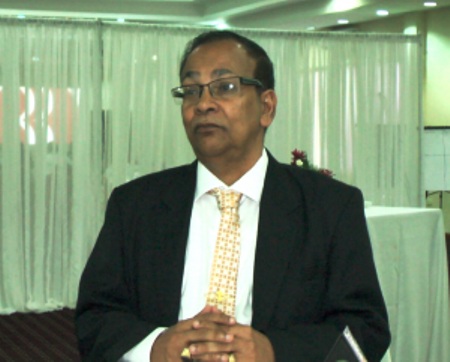December 21, 2021
Kaieteur News – The 2020 audit was hampered by the absence of records pertinent to the process. According to the report, which was laid over in the National Assembly recently, it was outlined that 1328 payment vouchers totaling $2.806 billion were not presented for the 2020 audit.
The missing financial records resulted in the limitation of scope for audits examining government expenditure for the year.
According to the document, 1282 of the payment vouchers, which totaled $2.728 billion were in respect of Office of the President, Office of the Prime Minister, Guyana Defence Force, Ministry of Public Works and Ministry of Home Affairs.
The remaining 46 valued $77.921M were in respect of the Regions. As a result, it could not be ascertained whether value was received for the sums involved, and whether the funds were used for the purposes intended.
Further, with regard to the missing records, the 2020 audit report noted that while returns under the records for the Ministry of Public Health noted that there was procurement, the financial records for 22 Inter-Departmental Warrants totalling $2.817 billion received by the 10 Administrative Regions could not be verified.
The financial returns from the Ministry indicated that the entire sum was expended. Although drugs and medical supplies were received by the Regional Administrations, the costs were not stated on the documentation that accompanied the deliveries.
As a result, auditors could not ascertain whether the Regions received drugs and medical supplies valued $2.817 billion.
This is not the first time that auditors have complained about missing financial records hampering the process of the audit. Prior to handing over the 2020 audit reports, Auditor General, Deodat Sharma complained of a similar occurrence in relation to the ongoing audits of City Hall.
Sharma stated that his office has been forced to return to the City Administration’s financial statements for the years 2019 and 2020, because they were not prepared in compliance with the regulations.
“The balance sheet just has a list of budgeted assets, that’s not how you prepare your balance sheet. There is also a gap of several years in the financial report from the City. They have submitted financial reports for 2019 and 2020, but the last audit was in 2004,” he lamented.
At that juncture, the AG reminded that he has repeatedly advised not just City Hall, but several other defaulting agencies to start over.
“Let’s close the books and open new books. Take an asset count of what is there, get a new bank account and everything. It doesn’t make sense to go back to 2005/2006. Let’s sit down and list all the assets. List all the cash positions and let’s start a new balance sheet. At least, from now on, your accounts can be audited,” he maintained before explaining that at City Hall, only 10% of his recommendations are being followed.
Elsewhere, accounting officers are taking recommendations more seriously. “We have met virtually and most have answered queries and provided answers so we can adjust the report,” Sharma shared.


